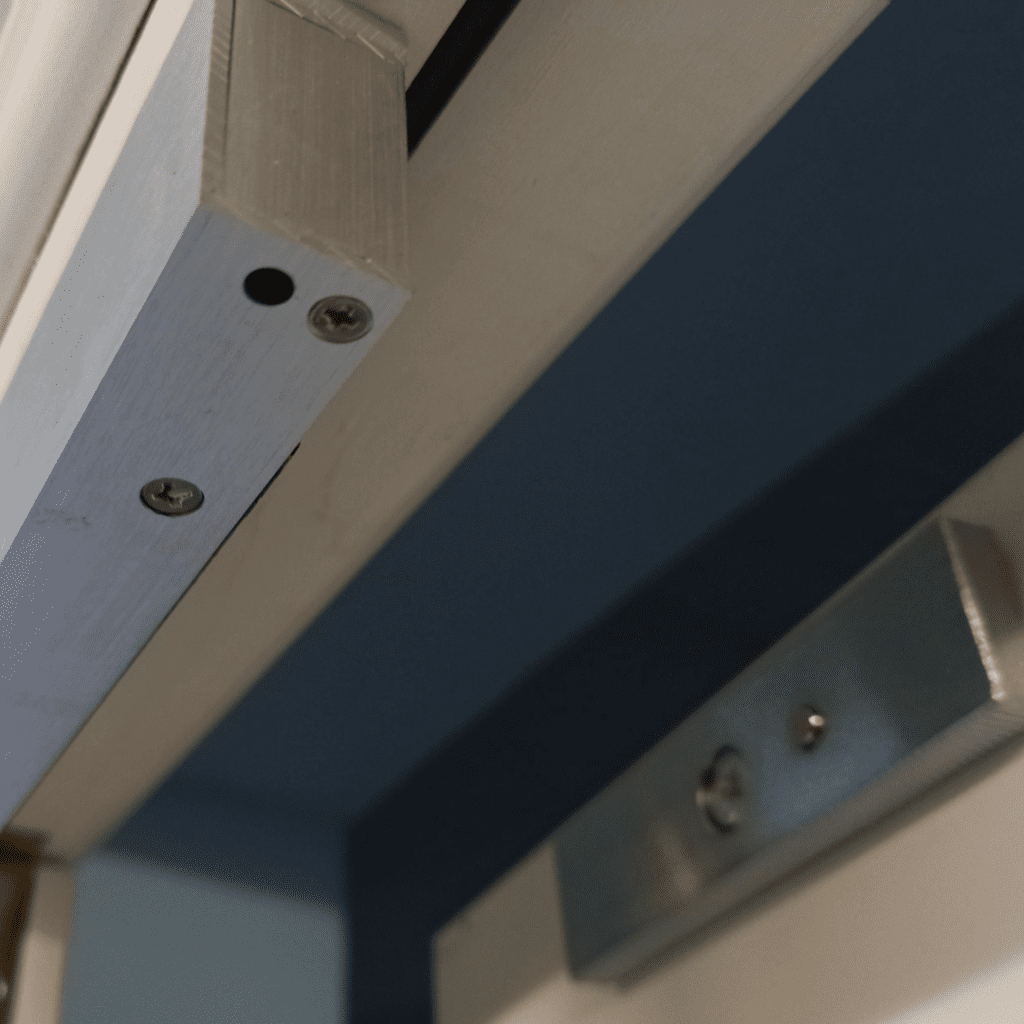
Magnetic locks are often the go-to choice for securing openings that don't fall neatly into standard hardware setups. They offer a clean, reliable solution for projects with tight timelines, tricky framing, or unique door materials, without sacrificing performance or safety.
Magnetic locks operate using electromagnetism. The system includes an electromagnet mounted to the frame and an armature plate secured to the door. When powered, the magnet creates a strong bond with the plate, keeping the door locked. Releasing that power—via an access control signal or fire alarm system—breaks the magnetic hold and allows the door to open.
Since magnetic locks rely on continuous power to stay locked, they’re classified as fail-safe. That means they’ll unlock in the event of a power loss, making them a dependable option for safety and emergency override.
Some doors simply aren’t designed for integrated electrified hardware. In those cases, magnetic locks provide a practical workaround. Common applications include:
The flexibility of magnetic locks makes them an ideal solution when doors don’t meet the original specifications or when field conditions require quick adaptations.
Magnetic locks can be easily customized with accessories that add convenience, control, and safety features to the overall system:
These enhancements allow a single magnetic lock to meet a variety of access control requirements, providing greater versatility and simplifying system integration.
Magnetic locks offer excellent options for installation, with the ability to surface mount, recess, and choose from various brackets to accommodate different door materials and swings. For example, shear locks mounted in the header engage when the door moves into position, making them ideal for spaces with limited room or design restrictions.
They are also well-suited for glass doors, oversized frames, or unique swing conditions, providing innovative solutions that maintain both design integrity and code compliance.
While electric strikes can fill a similar role, they require doors to be prepped in advance for mechanical latching. Magnetic locks are more forgiving in retrofit conditions and don’t rely on a latch, making them especially useful when the door hardware is incomplete or incompatible.
Certain openings demand more than a typical solution, and in these cases, a comprehensive understanding and expert approach are essential for achieving the best results—both in performance and in cost. Unified considers the complete context—door, frame, hardware, environment, and code—to deliver access control that functions as part of a fully integrated solution.
With stocked warehouses and the ability to modify doors both in-house and on-site, we remain flexible and responsive to evolving project demands. Our recommendations are grounded in experience and a clear understanding of what will perform best, not limited to what’s in stock.
As a total opening solution provider, we make sure magnetic locks, and every other component, work together with purpose, reliability, and lasting value.